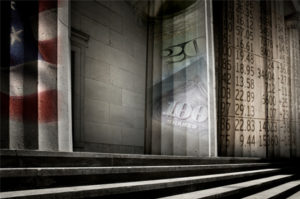
A lot of people wonder what types of SEC whistleblower cases the U.S. Securities and Exchange Commission (“SEC”) is interested in. What are the chances that the SEC will investigate and/or bring an SEC whistleblower case based on the information they have? These are often among the first questions that potential SEC whistleblowers ask themselves when deciding whether to report to the SEC.
While there is no absolute answer to these questions, it is safe to say that the SEC is always interested in receiving quality whistleblower information. Only the Commission can decide what types of SEC whistleblower cases it will investigate, and even then it may come down to a case-by-case decision based on the facts and evidence that the SEC whistleblower has.
Past Cases Can Be Helpful
A potential SEC whistleblower should be skeptical of any attorney or professional who claims or implies that they have enough personal influence to get the Commission to conduct an investigation or bring an SEC whistleblower case that it otherwise would not be inclined to bring. Likewise, a potential SEC whistleblower should be skeptical about any attorney who guarantees that they can get the SEC to bring an investigation or case. Not only is that decision entirely within the discretion of the SEC and its Staff, but in some jurisdictions it is an ethical violation for a lawyer to guarantee a result to a client or potential client.
To answer these questions, a potential SEC whistleblower might want to think about the types of cases that the SEC has brought in the past, as well as the types of cases that SEC officials may have discussed more recently in speeches or press releases. This will help to give them a sense of whether their SEC whistleblower case is the kind that the Commission might investigate.
Some Misconceptions About Types Of SEC Whistleblower Cases
The SEC describes itself as having the mission “to protect investors, maintain fair, orderly, and efficient markets, and facilitate capital formation.”
It is a common misconception that the SEC’s role is limited to frauds directly related to publicly traded stocks (securities) and the exchanges on which they are traded, such as the New York Stock Exchange or the NASDAQ. This misunderstanding most likely stems from the Commission’s own name, “Securities”, combined with the vast amount of media coverage dedicated to the daily performance of the stock markets.
While securities trading and exchange regulation are the most well-known subjects that the SEC has jurisdiction over, it also has an extensive amount of regulatory and enforcement powers that allow it to bring a wide-range of SEC whistleblower cases. What might surprise some people is whom the SEC regulates. The SEC oversees all participants involved in the purchase and sale of securities. This includes securities exchanges, securities brokers and dealers and brokerage firms, investment advisory companies, and mutual funds, as well as all public and private companies that offer their securities (equity or debt) to the general public. This also includes the officers, employees, agents, and often the professional advisors such as outside auditors or attorneys, of those companies.
Some Common Hallmarks Of SEC Whistleblower Cases
Any company of any kind that participates in the buying or selling of securities must provide truthful and accurate information to the general public that a “reasonable” person would want to know about when deciding whether to buy or sell a company’s securities. If a public company, brokerage firm, or investment advisory company hide this information or make false or misleading statements about the company or its securities, that could be considered a “securities fraud”. The SEC has the power to investigate and bring lawsuits involving these kinds of false or misleading statements.
The SEC is focused on the disclosure of important market-related information, maintaining fair dealing, and protecting against fraud. It may not be obvious whether something is considered a securities fraud or not. But, generally speaking, if an ordinary person would reasonably believe that certain information (good or bad) should have been disclosed, and that had it been disclosed it would have changed their mind about whether to buy or sell the securities, or at what price to buy or sell the securities, that may be a securities fraud that the SEC would be interested in.
Some Examples Of Types Of SEC Whistleblower Cases
Just a few examples of some other kinds of frauds that the SEC investigates are listed below. These can give an idea of some of the types of SEC whistleblower cases that the Commission might bring. You can click on the links to find out more about each kind of fraud:
- Accounting, Disclosure, and Books and Records frauds.
- Public Statement frauds (e.g., false statements or omissions in advertising materials).
- Foreign Corrupt Practices Act (“FCPA”) violations (e.g., bribing foreign officials).
- Municipal Securities frauds.
- Public Pension Plan frauds.
- Insider Trading.
- Securities Manipulation or Stock Market Manipulation.
- Unregistered stock offerings.
- Ponzi schemes and Pyramid schemes.
- High-Yield Investment Program scams (e.g., “Prime Bank” frauds).
- Misappropriation or Theft of customer funds or customer securities.
- Money Laundering.







